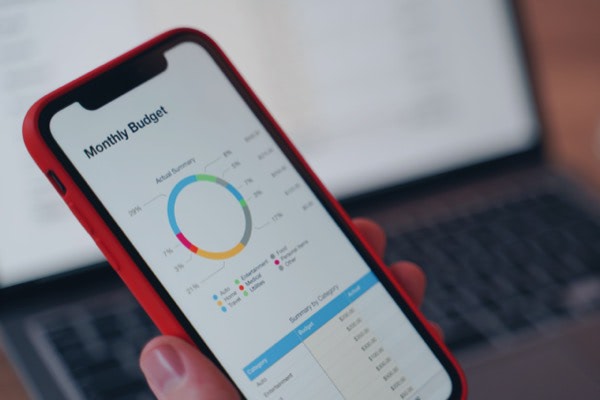Should you refinance your mortgage this winter? In this post, we discuss some key items to consider before making this decision.

Do you have an overspending habit?
How much do you spend each month? Of course, the answer will depend on your income, employment, and financial obligations. Everyone’s spending habits are different, but one thing that is a danger to everyone is the risk of overspending. Overspending can spell out big trouble for many Canadians. Here are some common signs of overspending, and what to do about them if they apply to you.
Signs of overspending
Many people who overspend exhibit the same habits and characteristics. If any of the following apply to you, it’s possible you’re spending beyond your capabilities.
Your credit card balances do not decrease
The goal of using a credit card is to keep your balance low. Ideally, you are not using your credit card in place of cash, and you are making regular payments to keep your interest low and credit score high. However, if you find your credit card balance has been stuck in the same spot for a long time, or worse, it keeps creeping up, this is a classic sign of overspending. It signals that you are using your cards in place of your actual money, meaning that you are relying on these cards to make your payments. While most people have credit cards and make use of them, the general recommendation is to keep your spending under 30 per cent of your credit limit.
You do not save a significant amount of monthly income
Building up savings is important for the future. Whether you want to buy a home, go on vacation, save for retirement, or just have financial flexibility, savings are essential. However, if you find you don’t have much money left over each month after you have taken care of your financial obligations, this might be a sign of overspending. It’s much easier to spend money than save it, which is why many people struggle to put money aside. Spending on items in the moment often feels more satisfying than tucking it away for a far-away goal. However, living without a solid foundation of savings puts you at greater financial risk. Without any wiggle room, you are much more limited and more susceptible to money struggles.
You haven’t created an emergency fund
Similar to your savings, an emergency fund is an important part of maintaining financial health. This is dedicated to saving up for unexpected expenses, which hit everyone at some point in their lives. Employment and income changes, home repairs, vet bills, and car breakdowns are just a few examples of expenses that might require some backup funds. It’s a big comfort to have these savings set aside for you to pull from when needed. If you don’t have an emergency fund, it may be because you don’t feel you have enough money to contribute to it regularly. If that’s the case, it could be a result of overspending.
You have trouble meeting financial obligations
Finally, a pretty clear way to see if you overspend is determining whether you struggle to meet your financial obligations. For example, if you have trouble making mortgage or car payments, or cannot make the minimum payments on your credit cards, this is a fairly big sign to examine your spending habits. If you bring in enough income to make your necessary payments, but you still have a hard time meeting those obligations, overspending throughout the month is likely the culprit. A quick look at your bank account will tell you if this is the case.
How to get a handle on your spending
If you have an overspending habit, how can you go about fixing it? Regaining control of your spending is a process that will differ between everyone. However, here are a couple of quick tips to help you get started.
Create a budget
This is the most basic rule of financial health. Everyone should have a budget, whether they overspend or not. No matter what your income and expenses are, creating a budget that accurately reflects your finances is essential. This will help you distribute your money evenly, ensure you are meeting your obligations, and prevent spending on items you do not need or cannot afford. There are several budgeting methods you can try, and tons of budgeting apps that make the process even easier. The goal is to develop a budget that accurately pinpoints what you need to spend and save, and how to properly distribute your funds.
Track your expenses
Not only should you make a budget, but you should also check in with yourself. Tracking your expenses forces you to hold yourself accountable, and it shows you where you are spending your money. It’s easy to track your spending thanks to online banking, so make a point of regularly checking your accounts. This is the only way to determine if your budget is working, or if you need to make any adjustments. It also puts you face to face with your spending habits, which might motivate you to be more cautious about the way you spend your money.
If you’re a home owner, contact a broker!
If you’re a home owner and have concerns about overspending, it’s important to reach out to a broker. Overspending can result in problems with your mortgage if you become unable to make your monthly payments. Plus, accruing a lot of extra debt while holding a mortgage can be a stressful experience. Brokers can help you evaluate your options, and consider whether a refinance or debt consolidation may be a good path forward. These moves can help you get a better handle on your finances long-term by making changes to your mortgage contract. The goal is to create the best plan that works for your finances.
Overspending is an easy habit to develop, and a tricky one to kick. However, recognizing the signs of overspending and taking action to reduce those risks are great ways to get yourself back on track. Evaluate your income and expenses, make a budget, and track your money carefully to improve your financial health.
If you have any questions about your mortgage, give us a call at Centum Home Lenders! You can reach us at 506-854-6847, or get in touch with us here.


